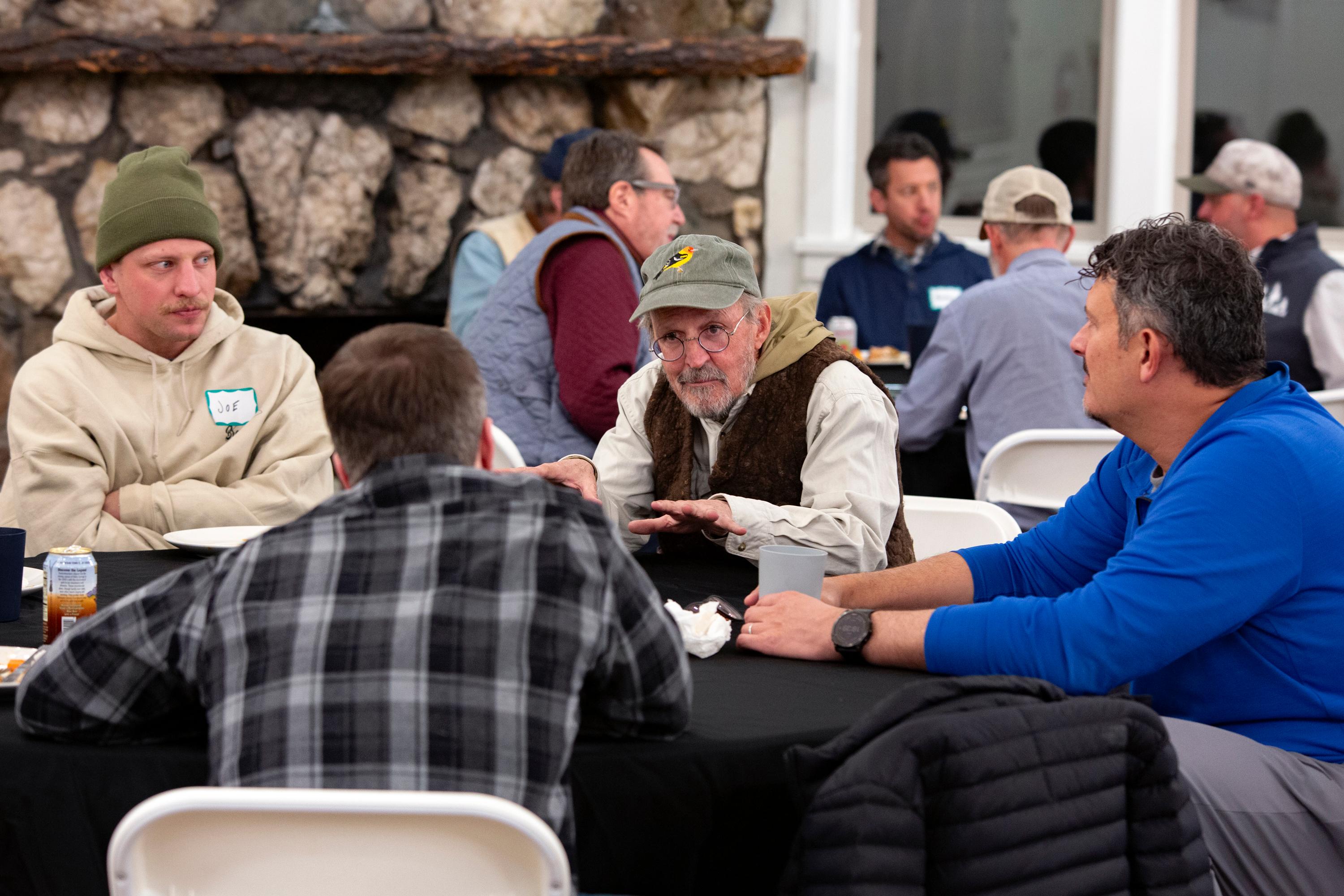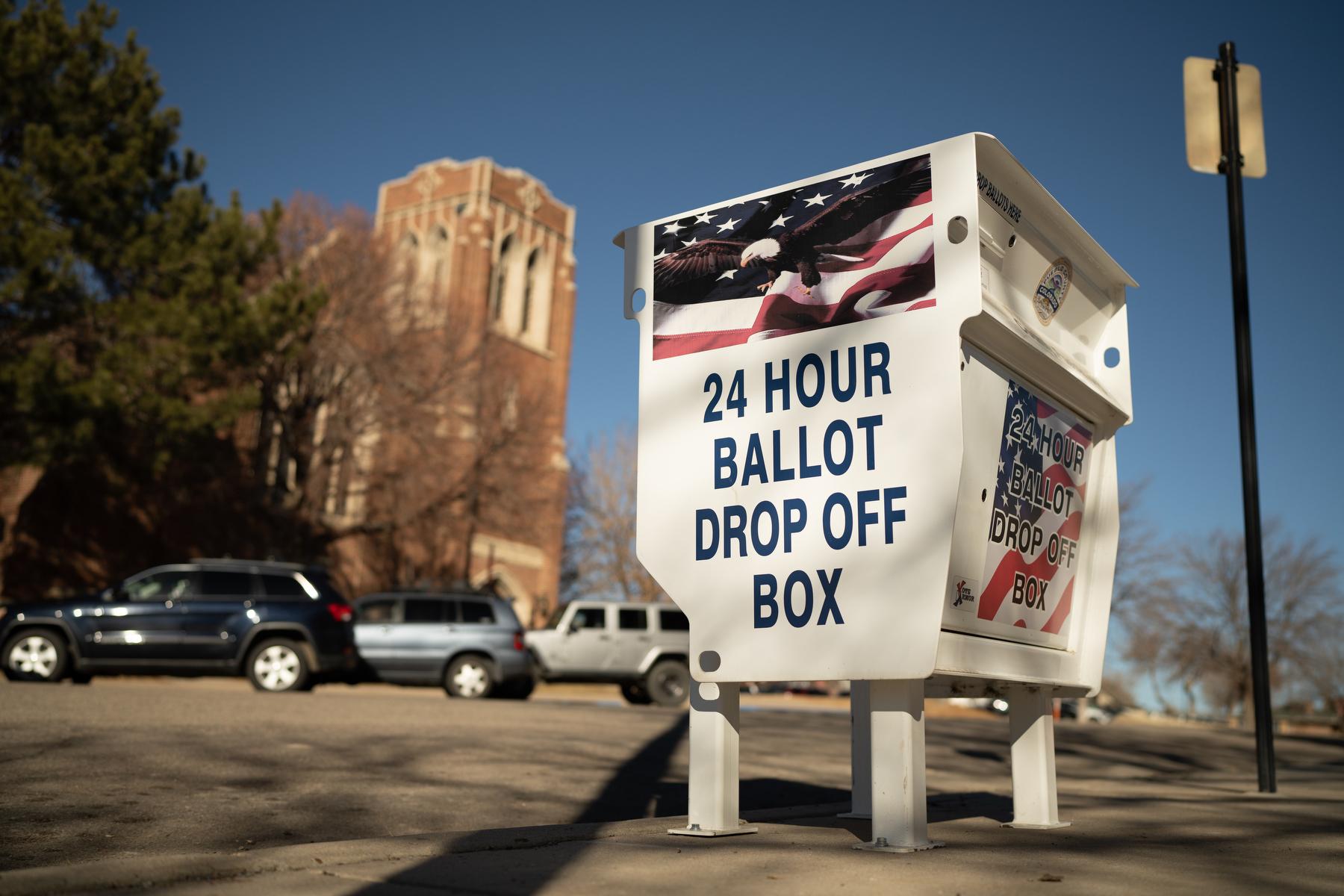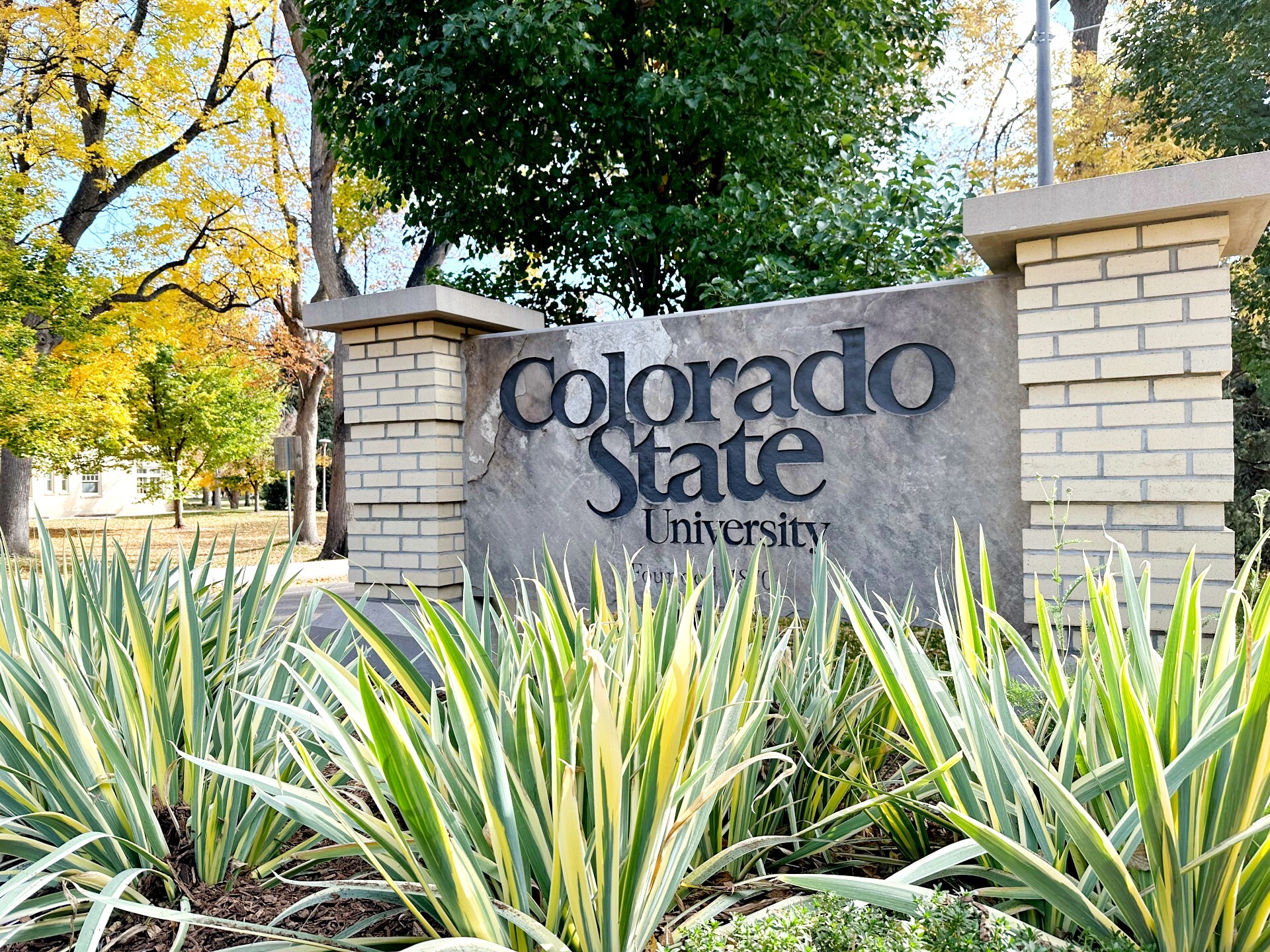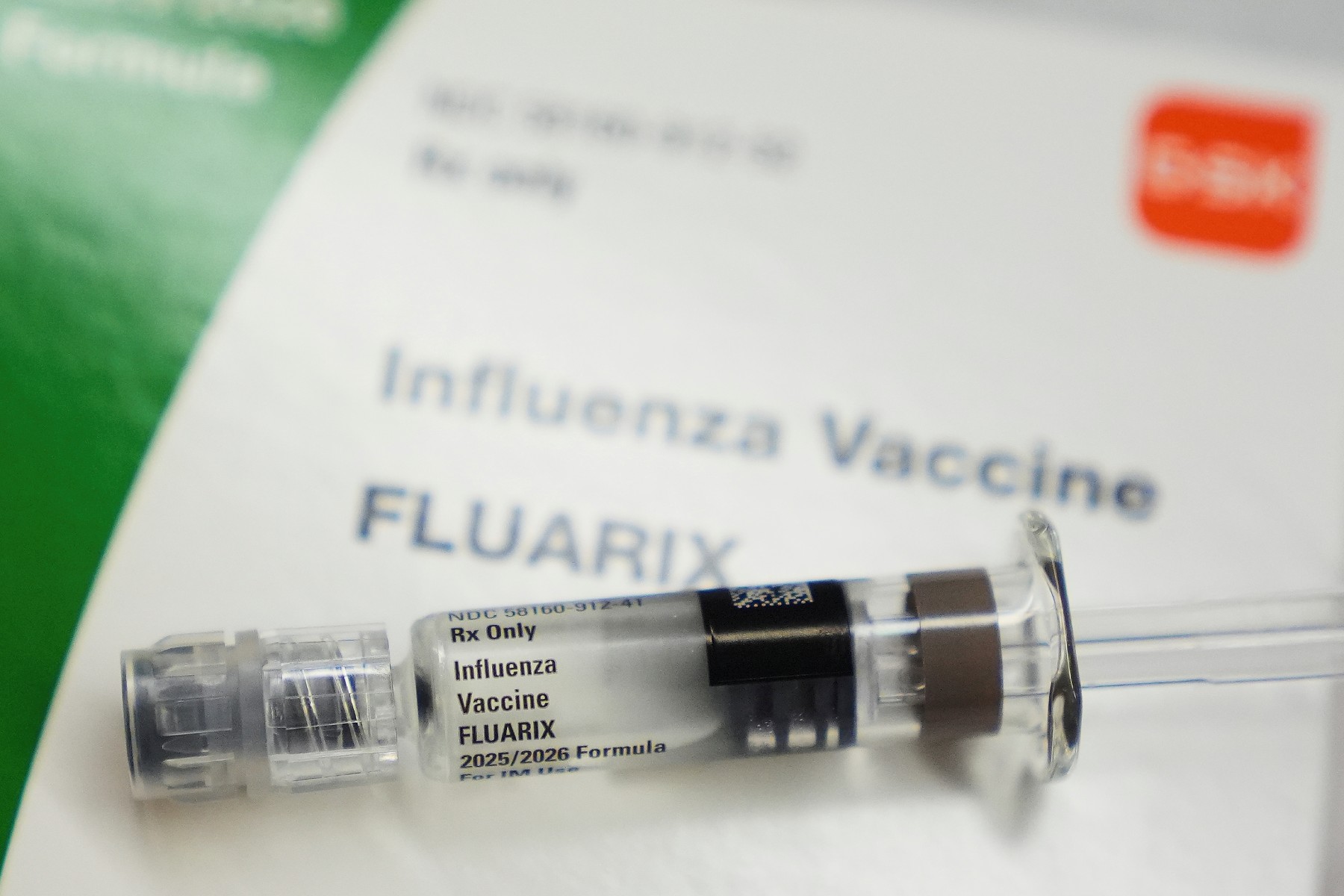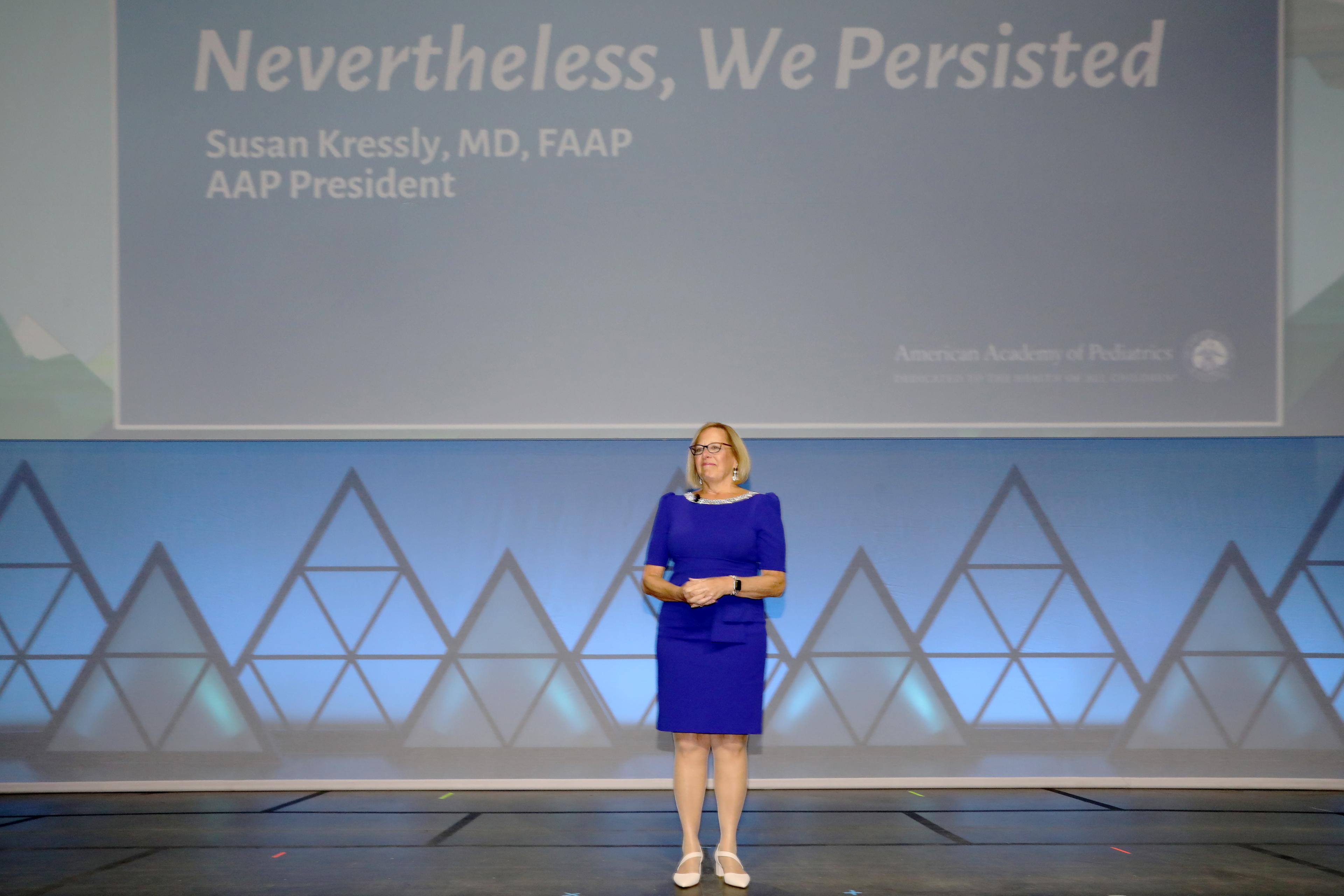
It’s been a time of remarkable change in U.S. health agencies during the second Trump administration under the leadership of Robert F. Kennedy Jr. That’s included layoffs, turmoil at the Centers for Disease Control and Prevention, contentious policy moves and statements, and protests.
Policies involving children and vaccines have put Kennedy, a longtime vaccine critic, and his health policies at odds with major medical groups, like the American Academy of Pediatrics. Colorado, along with other states, have taken steps to chart their own course when it comes to things like vaccine recommendations.
Because of a new law, Colorado’s board of health gained flexibility when making vaccine recommendations — it now doesn’t have to only follow the vaccine recommendations of the federal Advisory Committee on Immunization Practices (ACIP), remade by RFK with people more closely aligned with him.
The state’s health board can now seek guidance from some of the nation’s leading medical groups: the American Academy of Family Physicians, the American College of Obstetricians and Gynecologists, the American College of Physicians and the American Academy of Pediatrics.
Last weekend, the American Academy of Pediatrics held its 2025 national conference and exhibition at the Colorado Convention Center in Denver.
During this critical time in the landscape of health care and vaccinations, CPR spoke with Dr. Susan Kressly, president of AAP. She was a pediatrician for 35 years in Pennsylvania before leading the nearly century-old academy, with 67,000 members around the world.
She spoke with CPR Health Reporter John Daley.
This interview has been edited for length and clarity.
John Daley: We've got pediatricians here from all over the country. It's a very interesting time to be a pediatrician. What are you hearing from them at this conference?
Dr. Susan Kressly, president of AAP: One of the most important things is that pediatricians are really celebrating our ability to come together, to join together, to learn and to lift up our collective work and to really think about how we elevate the concerns of child health, across the country and beyond, and how we can come together to make sure that every child in every community gets what they need to thrive.
Daley: What's your main message on vaccines? You've been kind of in the middle of the mix on this, maybe more so than ever as an organization, with the federal guidance changing, and then states like Colorado stepping up to say that they'd like to seek guidance from groups like yours on vaccines.
Kressly: Immunizations have always been the cornerstone of preventative care for pediatricians. And we consider it one of the core ways that we keep children healthy and that's really not changed. We have always, for over 90 years, the American Academy of Pediatrics has put out pediatric recommendation schedules and used our experts to review the data to, to make those recommendations. What has changed is we had been enjoying a really collaborative partnership with our public health folks at the CDC and (Department of Health and Human Services) to really do this work together.
But this year, because all of the expertise was removed from the process, the transparency was removed and the expert voices really were decimated in the process. That is not one that we can rely on or trust.
Daley: Do you think that with Colorado and some other states as well, diverging from the federal guidance on this, that this will change what insurance companies do or what federal programs will cover and whether families will be able to get vaccines, in their states and in states like Colorado?
Kressly: I think we have to separate two things. I think that the insurance companies, it is in their best interest to also keep their patients and populations healthy. We've heard from a lot of the payers and the America Health Insurance Plans (a key trade and advocacy association for U.S. health insurance companies) that they plan to follow our guidance and make those vaccines available. The decisions about what gets made available in federal programs like the Vaccine for Children's program, which covers more than 50 percent of kids in this country with no cost vaccines, really depends on how the statutes are written. Some of that is state applicable, whether their state statutes are written and referred to ACIP or they refer to Colorado's public health guidance, et cetera. And so, it is a little confusing for the public because this may look differently in different states. But it is really, again, encouraging to see that Colorado was stepping up to make sure that child health is protected and access to vaccines is maintained.
Daley: Do you think that perhaps two different systems of health care might emerge, one that's following the recommendations of groups like yours — which Colorado would fall into — and one that's continuing to follow what the administration is doing?
Kressly: While we continued to do what we've always done, which was to produce a pediatric immunization schedule for kids, we did that according to our usual process with our policy guidance and our board approval. And what happened this year is that it diverges from what the decimated infrastructure has produced at the government. We can no longer trust what's coming out of there because we don't believe it's in the best interest of children. Actually, we know it's not in the best interest of all children.
It's really heartening, really encouraging, for us to see that others are, such as Colorado, are using the science-based Academy recommendations and doing their part so that we can turn those recommendations into care, so that children in every community can get the vaccines that they deserve to stay healthy, that their parents want to obtain. It's really, really encouraging to see people coming together to support the science and really make it possible for what the majority of American families wants, which is access to the vaccines to keep their kids healthy.
I don't think I can pretend to have a crystal ball and know what's going to happen. I can tell you that every week we hear of more people who are joining us in saying, this is the science-based, recommendations. And we want to make that available for the people in our community.
I also want to be clear that the American Academy of Pediatrics does not want to create a parallel system. What we want is to reinstitute the rigorous process and the scientific vigor and the experts, that was in the benefit of everyone. When the ACIP had work groups that functioned and their only agenda was what's in the best interest of all children, every community, and in public health.
Until that time, we'll do what we need to do to step into the void to try to close gaps.
If nothing else, this chaos has shown the American public how complex our vaccine infrastructure is and in many ways how fragile it is when we don't pay attention to making sure how do we turn science into recommendations and recommendations into care.
Daley: So your message, regarding the federal recommendations on childhood vaccines right now is to follow the AAP and ideally restore the ACIP and the federal vaccine recommendations to a more science-based approach like which used to exist. Is that right?
Kressly: That's exactly right. And we are partners with families in making those decisions. We are the trusted people who help them make all kinds of health care decisions. And in the chaos and confusion, we encourage families to turn to the people that they trust when their children are sick. And that is pediatricians. The policymakers are not there to provide care when their child is sick and they need care. We are there to prevent them from getting sick when they get sick, to watch them grow, try to keep them as healthy as possible and help them to thrive.
Daley: I wonder if you could describe just briefly how AAP looks at the science regarding vaccines and studies and how it prepares its recommendations?
Kressly: We have a committee on infectious disease that is very integral to this process. They review a lot of data. They sit down with experts looking at data, epidemiologists and other specialists who have extensive expertise in immunology and infectious diseases, in interpreting data, in population health, and looking at risk-reward analysis and looking at the data from the pharmaceutical companies themselves.
There's a whole rigorous process with multiple experts and back and forth and very robust discussions to come to recommendations. Those recommendations then get formulated into policy, which is reviewed by many experts within the Academy, and ultimately approved unanimously by our board of directors. That is the process that translates what the science says into our recommendations.
Daley: How would it work with a state like Colorado, when it's implementing its recommendations?
Kressly: We welcome all questions and make the appropriate experts available so that other entities can with confidence know exactly what they're proposing when they endorse our recommendations. We want everyone else to also understand what we've learned through our process, which is that it is one that is robust, it's science-based, and it can be trusted.
When we share that knowledge and answer questions with other stakeholders, that just strengthens our understanding and our foundation of the immunization recommendations in essence, it's no different than turning to their pediatricians and asking questions. If there are others, our leaders will connect people to the right experts within the Academy and the process to make sure that you can also confidently stand behind the recommendations that were made by the American Academy of Pediatrics.
Daley: You mentioned that you see the federal government as moving away from science, like on these vaccines, these recommendations. Do you have a couple of examples of where you think that's happened?
Kressly: We can talk about the COVID vaccines for children. They made a recommendation and a statement early in the process without ever having a robust discussion with what used to be the COVID vaccine working group. They made the recommendation without looking at the data and the science. And when they were asked what is the basis for this recommendation? There was no answer, according to the data that led them to that recommendation.
Hepatitis B. They were putting that on a discussion board and talking about how children actually get Hepatitis B. It actually was incompletely informed. And when we listened to the recent ACIP meeting discussion, it was clear that there were several members on the committee who, number one, didn't understand how Hepatitis B vaccine is a cancer prevention vaccine for infants, that given in infancy, prevents cancer, didn't understand how to review the data, didn't understand some of the basics that we use, statistical analysis, to make the recommendations.
It was in that meeting, which was open to the public, where there were experts trying to explain to the decisionmakers how actually to interpret the science. And that does not invoke confidence in them applying science to make recommendations.
Daley: I saw in your opening plenary address on Saturday, that you had a quote where you're saying “We're witnessing not just an attack on science, but a troubling campaign against pediatricians.” I wonder if you could elaborate on that?
Kressly: When the HHS secretary said that pediatricians give vaccines for financial reasons, nothing could be further from the truth. That is a direct attack on people who have committed their entire professional lives to doing nothing but to holding up the health and wellbeing of children.
We don't make money from vaccines. We make recommendations about vaccines because it's in the best interest of children. And so that was a direct attack on us professionally, and one that we will not shy away from because it's untrue.
Daley: When it comes to the Make American Healthy Again movement, do you share some of the goals of RFK in terms of things like preventative medicine?
Kressly: There's many things that we really share the value on. Making children healthier so that the country can be healthier. And that includes healthy, nutritious foods, getting rid of environmental toxin exposures, and making sure children have access to mental health services and many other things so that they can be healthy and thrive. And our focus as pediatricians is health promotion, wellness promotion, and prevention of disease. That really aligns with the core of pediatrics. Where we’re different is what those solutions would look like and how do we prioritize making that happen.
Daley: I see your group is pushing to try to get vaccination rates for kindergartners above 95 percent. On vaccines, what are you hearing from your members, from the doctors out there, and what do you think they're hearing from their patients?
Kressly: So unfortunately, it's the parents and the children who are paying the price for the chaos and confusion. That’s probably to me the most important thing to communicate. It is really impacting every pediatrician in every community. There are just more questions, more concerns, and when families are concerned, it often feels like the safest thing to do is to wait and not act and to choose, “Let me think about the vaccine. Let me delay it. Let me have a conversation. Let me learn more.”
And for pediatricians, every lost opportunity to vaccinate, we feel, puts the child at risk because while they are not vaccinated, the germs and the infections haven't gone anywhere. And so their child is susceptible to getting the infection. So we really look at lost opportunities to vaccinate as a missed opportunity to keep a child healthy. And so, we're answering way more questions. We're seeing more people who are wanting more information or wanting to delay. There is no science-based argument in doing so.
I think that as we restore confidence and we build confidence, it would be really amazing if we could get to a place where we are all aligned and the vaccine confidence is shared in every community, which then puts every child in a position to thrive.
We're starting to see, a little, declining (vaccination) rates, and especially in certain communities. So this is an all hands on deck, do whatever we can to restore confidence, to boost those school, kindergarten rates so that communities are protected and can thrive.
Daley: What's your take on the comments about autism from the administration?
Kressly: Autism and the causes of autism are complex and multifactorial. To simplify them and try to make it one cause is really giving a disservice to the autistic community. They deserve and we all deserve to really work together in a comprehensive way to make sure that every child in every community has the resources that they need in a family-centered way, to make their health goals. And quite frankly, there are people in the autistic community who are angry at how they have been characterized, their children as children to be fixed or cured, when their children are just children and deserve to be cared for, supported and loved in their family and their community. To simplify this, without the science and the data to back it up, is doing everyone a disservice.
Daley: Earlier this month, the state’s chief medical officer, issued a standing order to let pharmacists provide COVID-19 vaccines without individual prescriptions. For parents who might have some confusion about COVID-19 vaccines, flu vaccine, MMR and any of these questions, the best advice is always to talk to their doctor?
Kressly: Always bring your questions to us. We are happy to take this journey with you because parents and pediatricians have the same goal in mind, and that is to keep your child safe and healthy.

